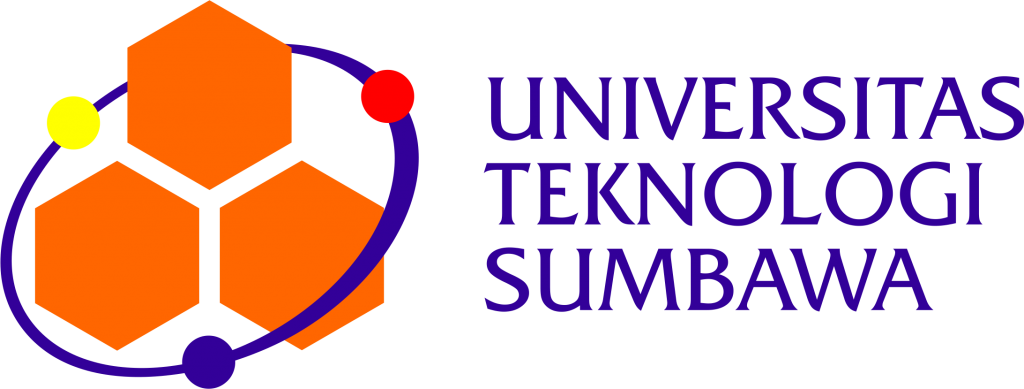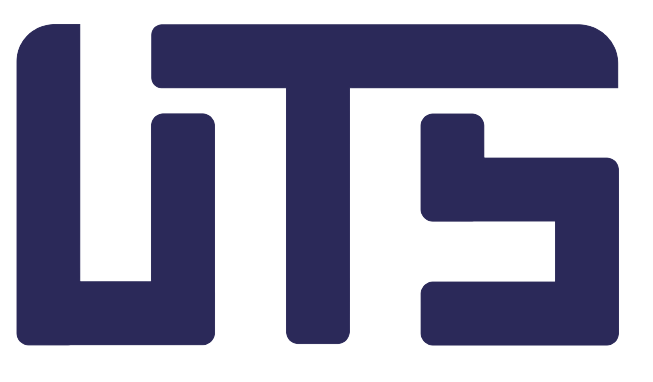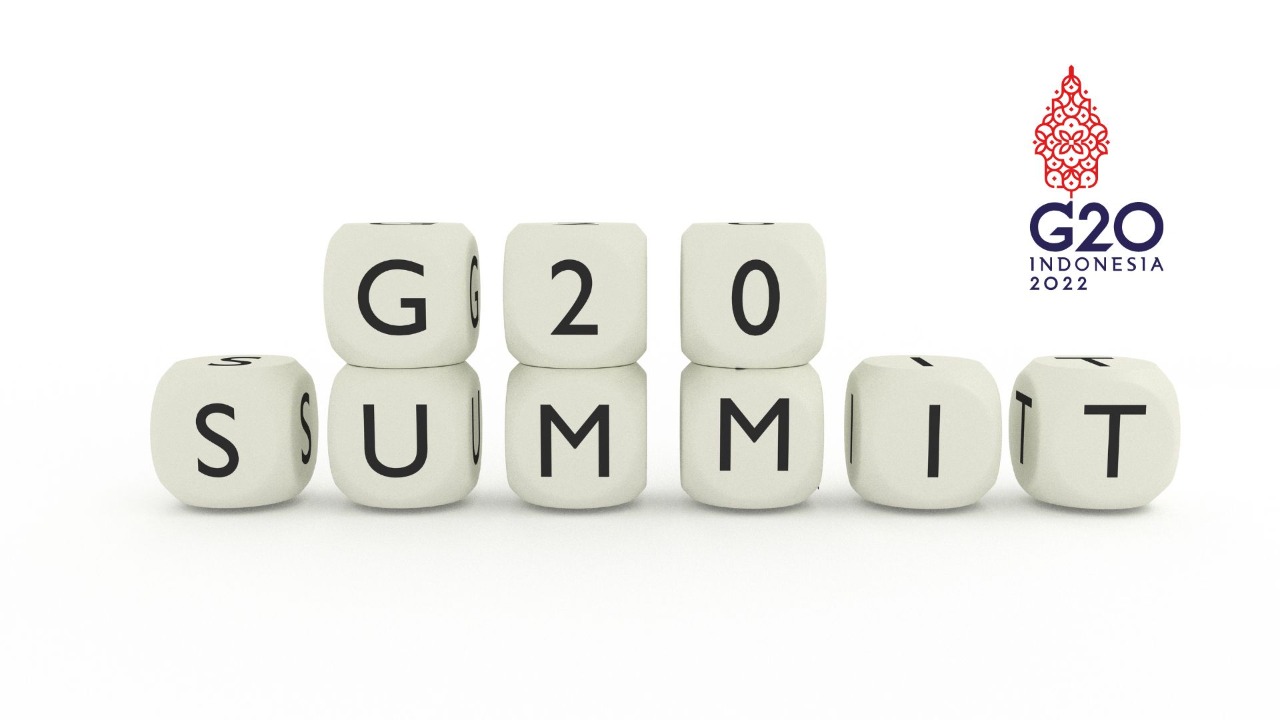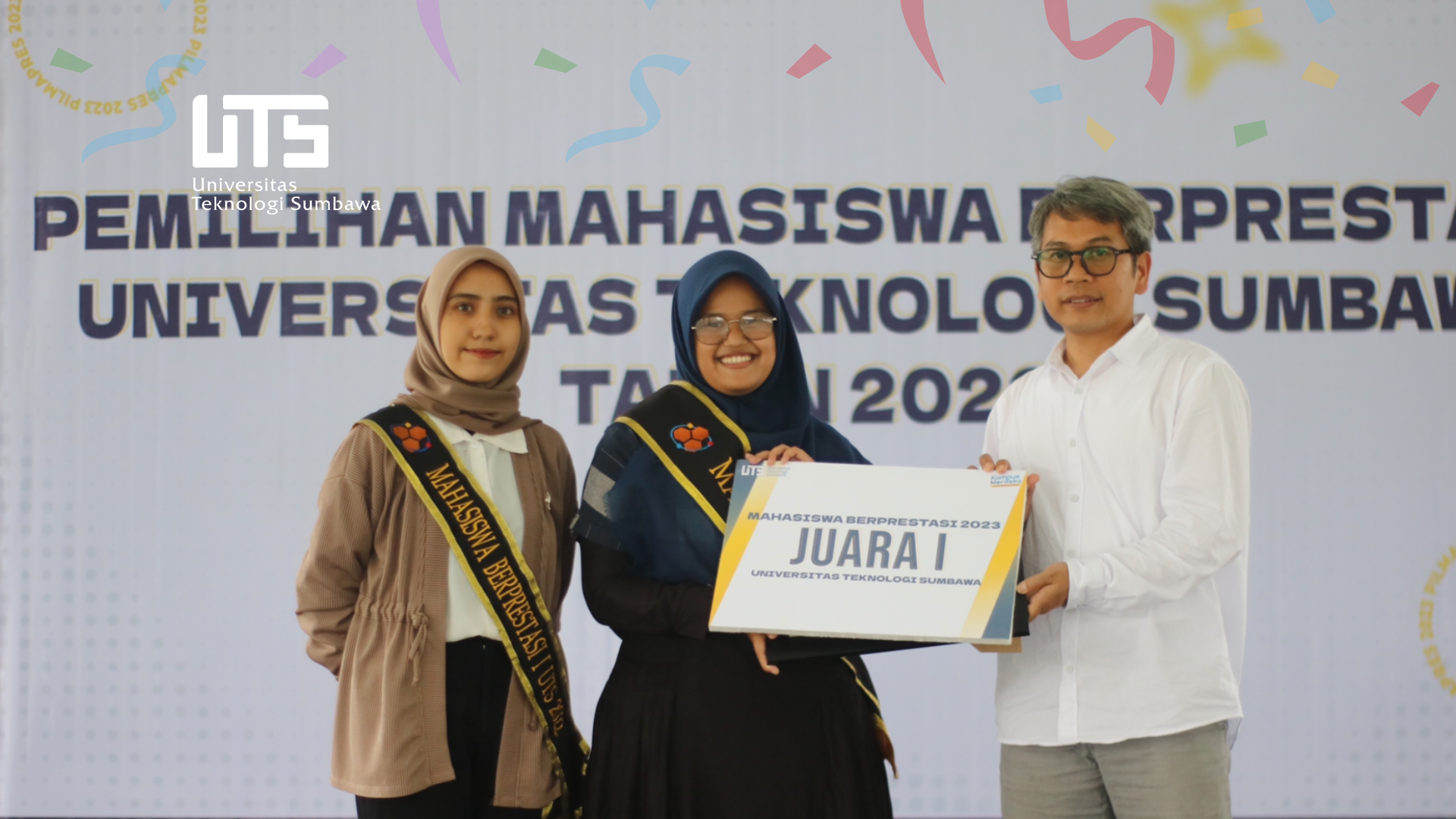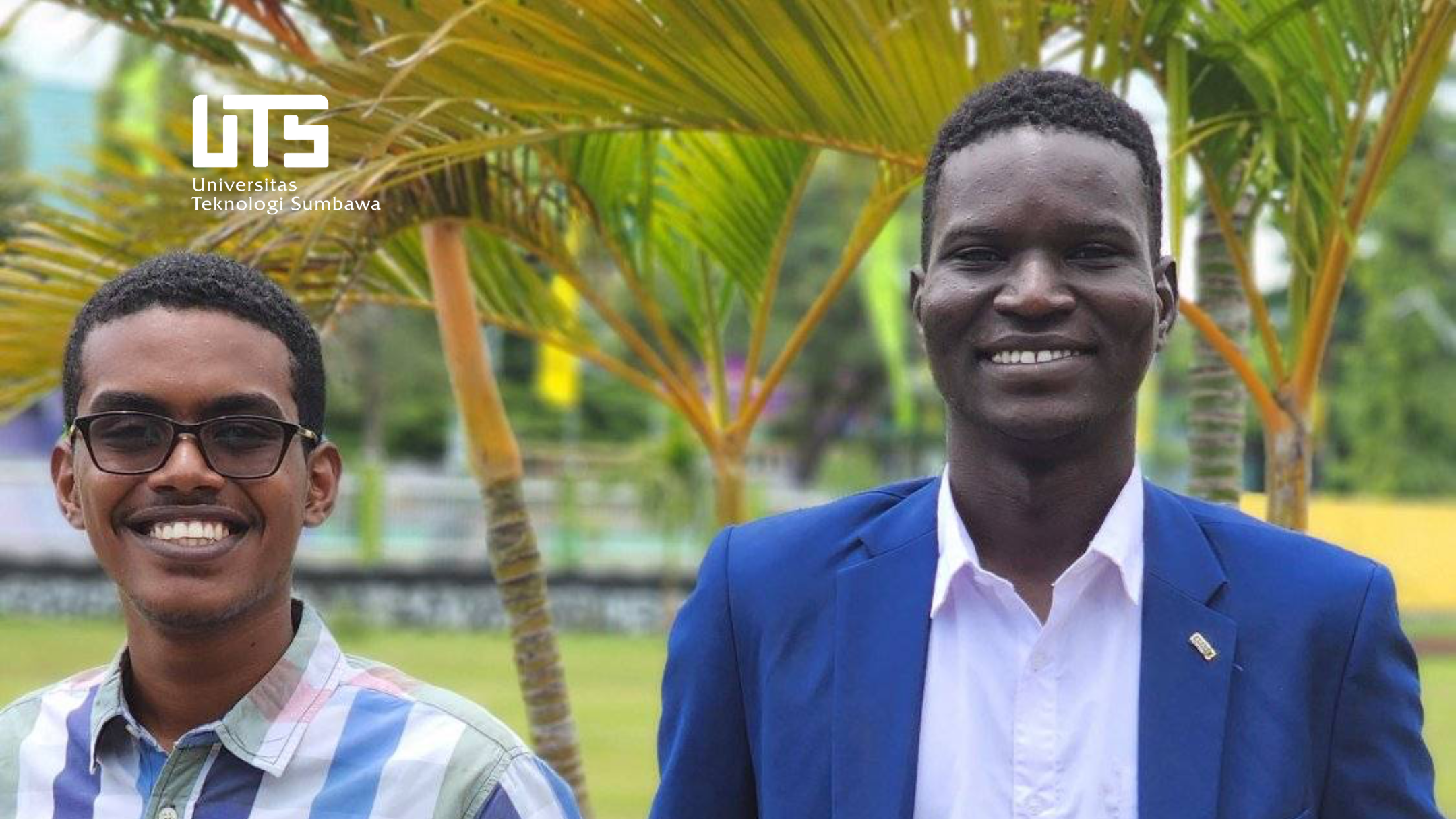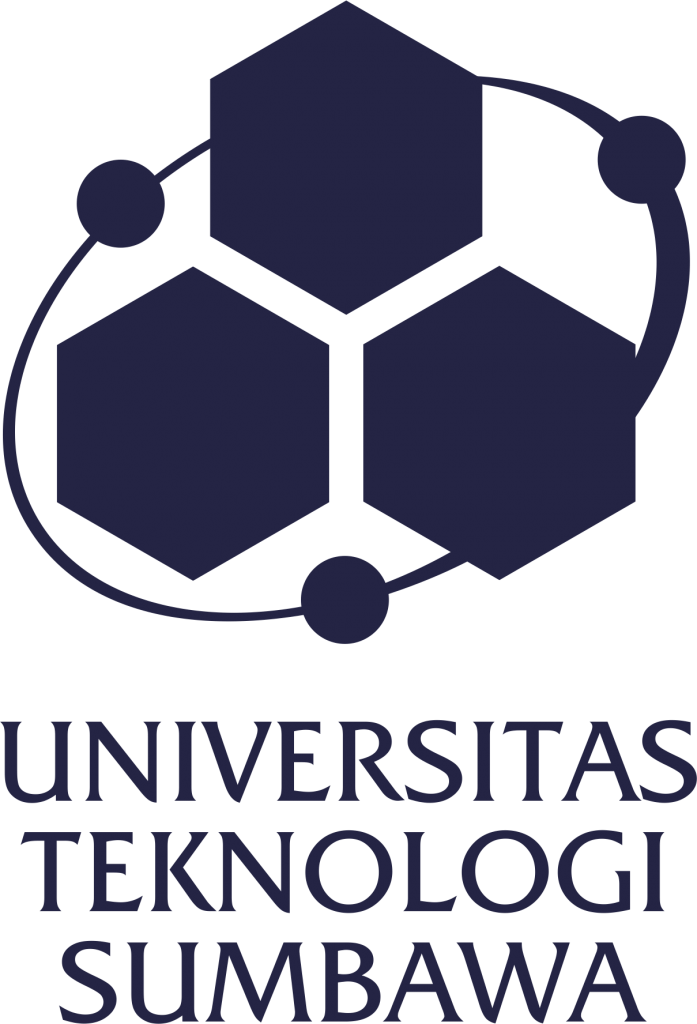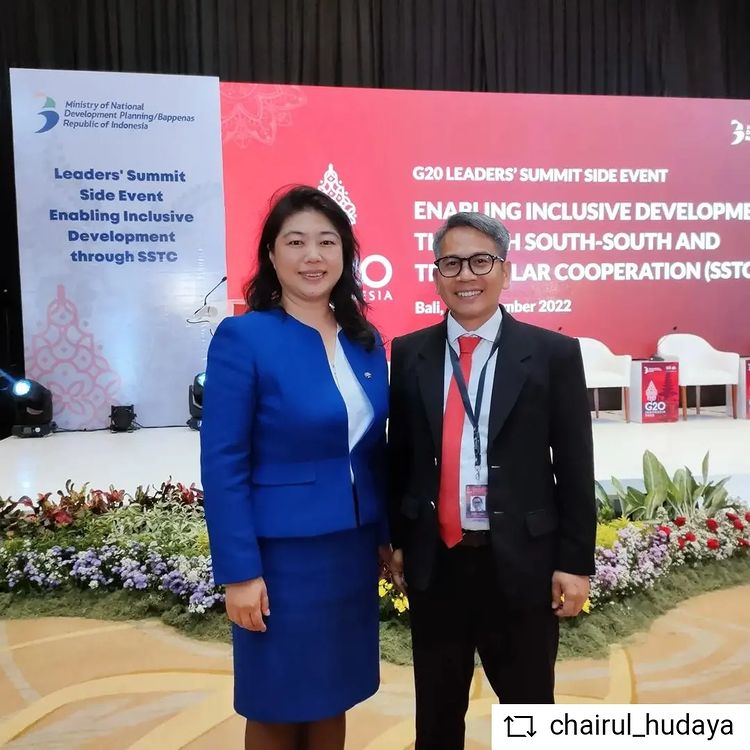
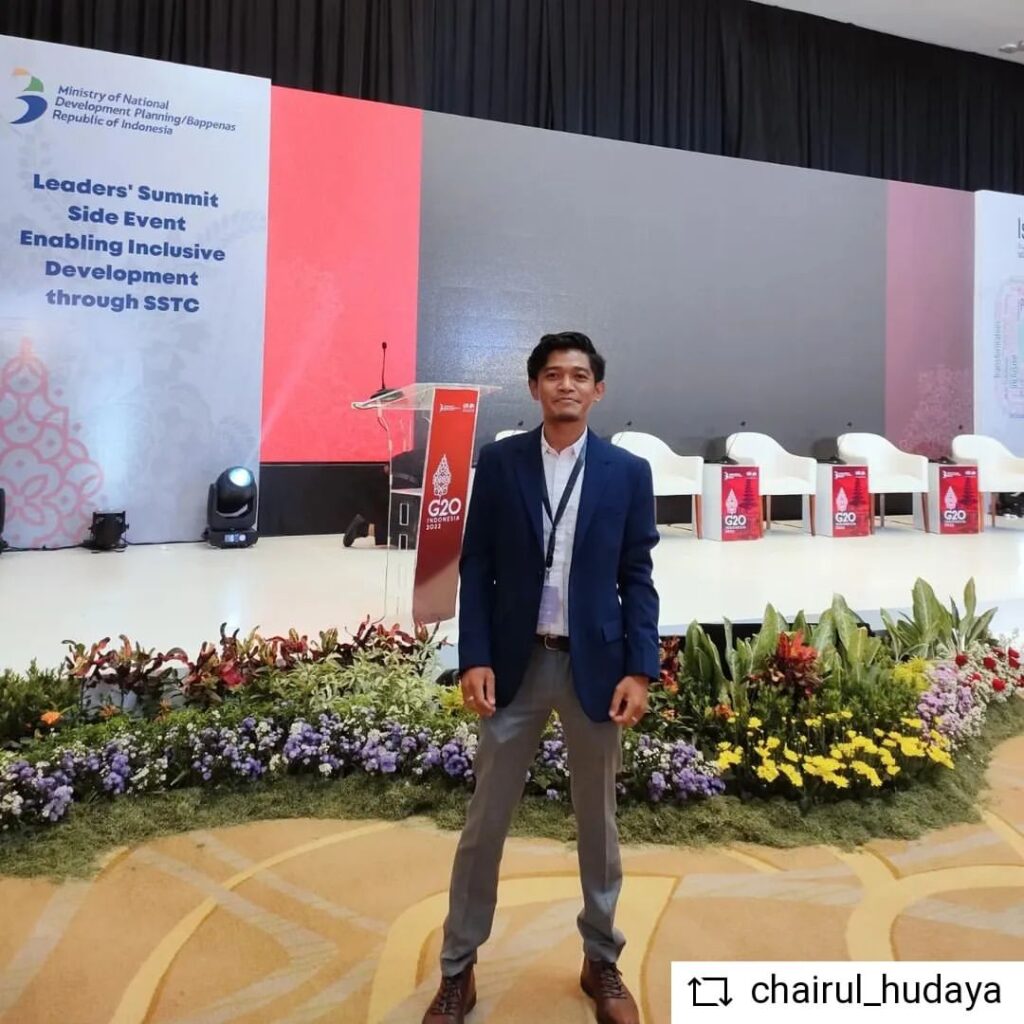
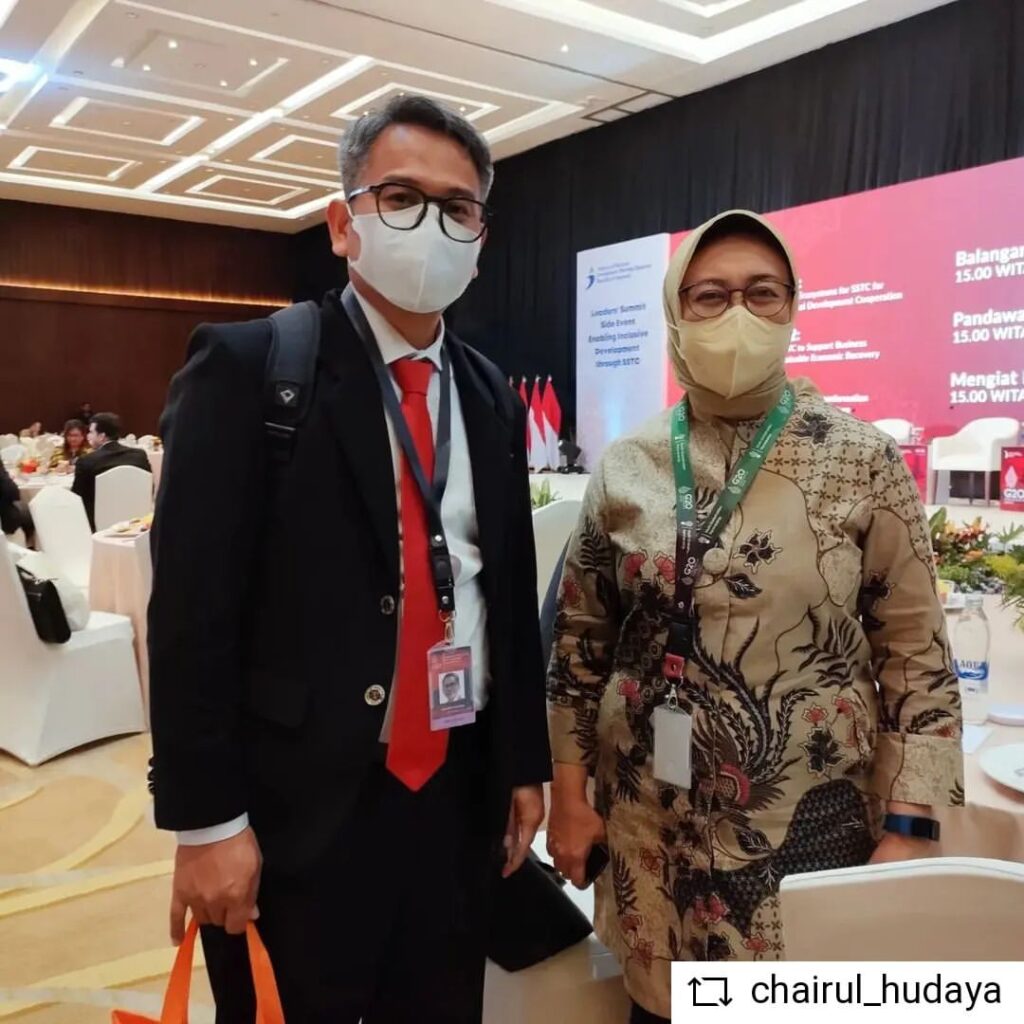
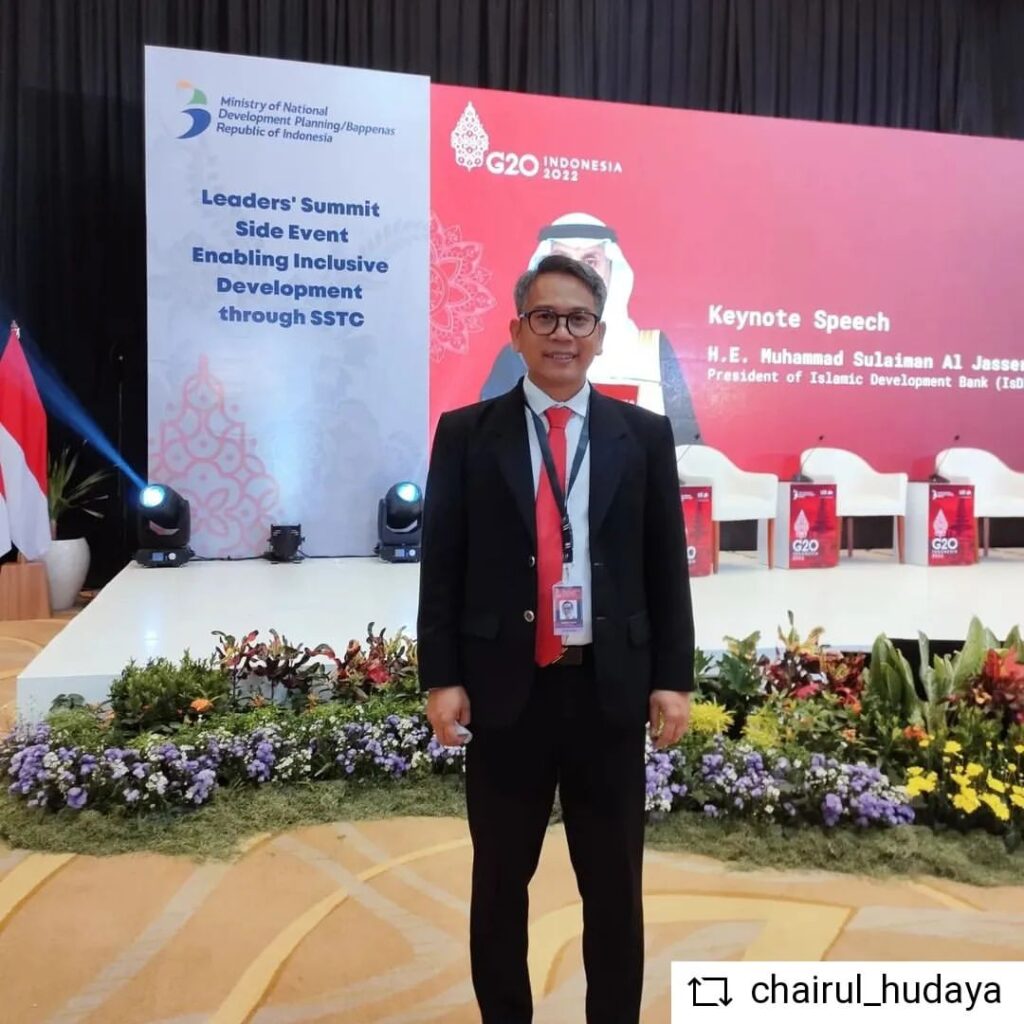
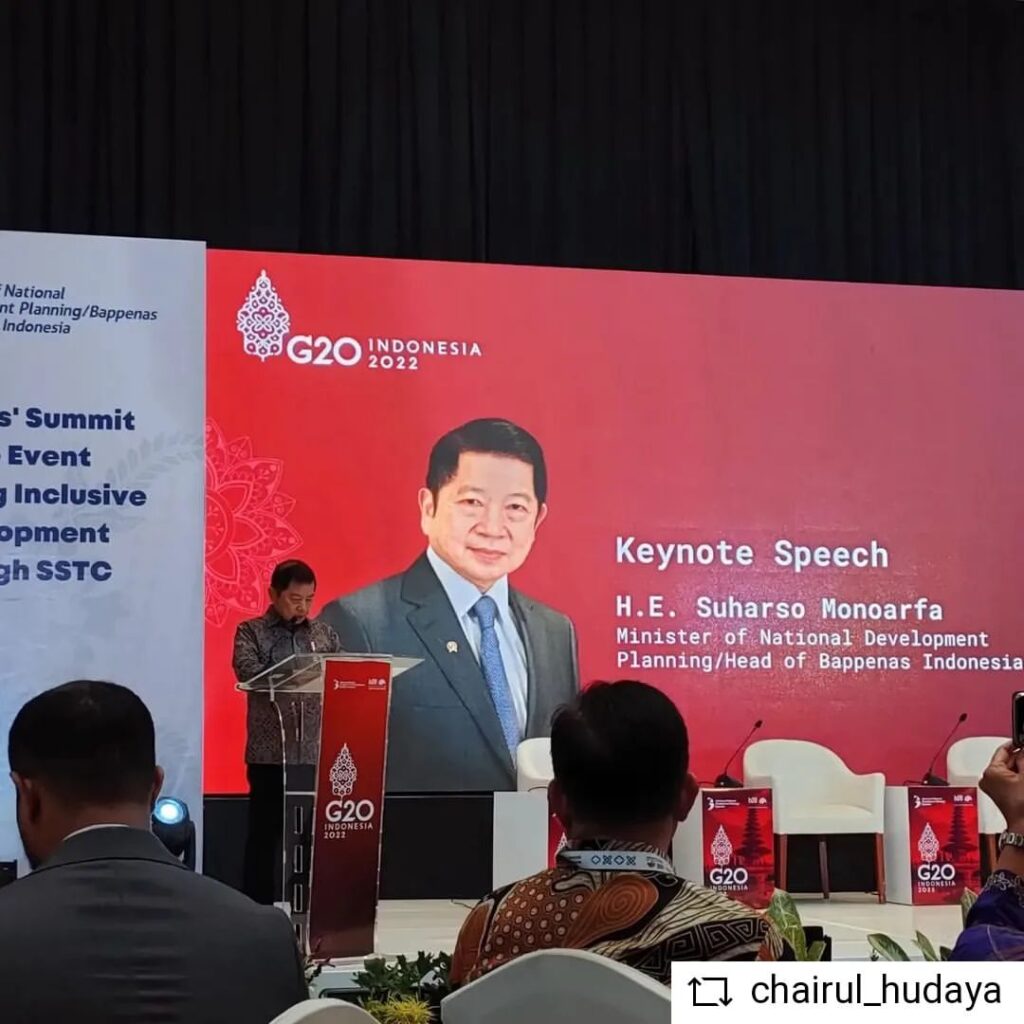
Summit in Bali was one of the most anticipated global events for the Indonesian government and non-governmental actors. Aside from the main summit, several side summits were also organized by different actors such as ministries, development banks, and international organizations discussing specific issues aligned to their field of development focus.
The UTS rector, Mr. Chairul Hudaya, Ph.D., and Mr. Eri Sofiatry attended two of the Summits to connect the university agendas with the global actors and seek to increase partnerships with local and global institutions. The first summit was Tri Hita Kirana Future Knowledge Summit combined with the Festival Kampus Merdeka. Taking place in the United in Diversity (UID) newly opened campus on Sarangan Island Bali the summit’s main topic was Intergenerational Dialogue for Our Emerging Future” where the Minister of Education, Research and Technology Nadiem Makarim facilitated the talk with the CEO of Tesla Motors, Elon Musk on “Envisioning Education for Future Science and Technology”. Elon shared his thoughts about how higher education should be relevant to the current emerging changes. For the students and everyone who seeks to make changes, Elon Musk argued that having an obsessive curiosity and critical thinking is fundamental. The event ended with Kampus Merdeka Festival where the event provides a panel discussion on supporting higher education institutions to develop and implement Kampus Merdeka independently. In addition, there were showcases of such programs from various universities from all over Indonesia.
The second summit was on “ Enabling Inclusive Development through South-south and Triangular Cooperation (SSTC). This event was organized by the Ministry of National Development Planning, the Republic of Indonesia, and the Islamic Development Bank. The central theme of the discussion in this forum was how to leverage the works of SSTC by developmental actors, be it government, NGOs, and universities towards the achievement of SDGs. South-south cooperation refers to the technical cooperation between developing countries known as the Global South in knowledge exchange, development supports, best-practice sharing ad replications, as well as establishing platforms for the global south to cooperate. When it comes to universities, the Indonesian higher education system and policies have made international cooperation as one of the key success indicators in measuring good quality university governance. This potentials has not been systematically driven to support the circular cooperation.
More than a conference, this is a high-level networking platform for UTS delegates. As one of the results, UTS has convinced the Ministry of National Development Planning to support the establishment of SDGs center in the university.
UTS has done its share in initiating global cooperation including providing a platform for SSTC through its very own UTS Global Ambassador Scholarship Program. On the side of circular cooperation, UTS seeks to strengthen its cooperation with Indonesian universities, government institutions, and private sectors to sustain the program. Putting a vision of bridging the global talents with local dynamics, UTS is voicing the discourses of global cooperation from the peripheral area of Indonesia to connect the eastern region’s community with global opportunities. We believe that diplomacy and global cooperation can happen between Sumbawa and Buenos Aires or Brussels, contesting the old idea of diplomacy between Jakarta and other world centers.
